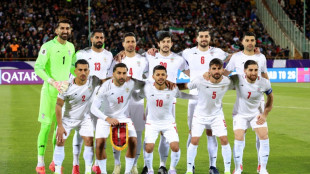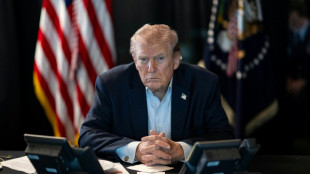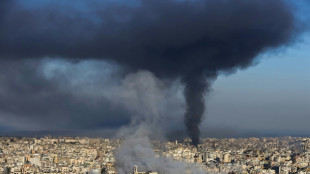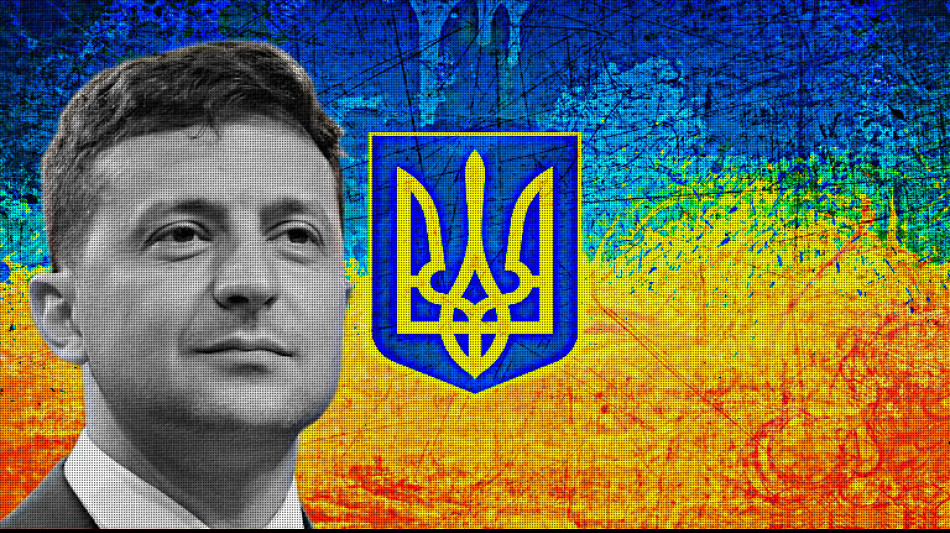-
 Will Iran take part in the 2026 World Cup?
Will Iran take part in the 2026 World Cup?
-
Afghans escape from Iranian cities to get home

-
 'Peaky Blinders' stars hit Brum red carpet for movie premiere
'Peaky Blinders' stars hit Brum red carpet for movie premiere
-
Brazil's Flamengo sack coach Filipe Luis despite 8-0 win

-
 England 'not fearing anything' against India, says Curran
England 'not fearing anything' against India, says Curran
-
Global markets turmoil intensifies on Iran war

-
 Iran targets Mideast energy industry and US missions
Iran targets Mideast energy industry and US missions
-
Rahm accuses DP World Tour of 'extorting players' with LIV deal

-
 Thousands of Afghans displaced by Pakistan conflict
Thousands of Afghans displaced by Pakistan conflict
-
China, North Korea make winning starts at Women's Asian Cup

-
 EU asylum applications down but Iran concerns mount
EU asylum applications down but Iran concerns mount
-
Rahm accuses DP World Tour of 'exorting players' with LIV deal

-
 Drones hit US embassy as vengeful Iran targets Mideast cities
Drones hit US embassy as vengeful Iran targets Mideast cities
-
Mideast war exposes fragile oil, gas dependency

-
 How the T20 World Cup semi-finalists shape up
How the T20 World Cup semi-finalists shape up
-
Oil extends gains and stocks dive as Middle East war spreads

-
 Warming El Nino may return later this year: UN
Warming El Nino may return later this year: UN
-
Trump says US-UK relationship 'not like it used to be'

-
 Eight years on, trial begins in Argentina submarine implosion
Eight years on, trial begins in Argentina submarine implosion
-
Beijing votes out three generals from political advisory body

-
 Oil extends gains and stocks dive as Iran conflict spreads
Oil extends gains and stocks dive as Iran conflict spreads
-
The French village where Ayatollah Khomeini fomented Iran's revolution

-
 South Africa, India eye T20 World Cup rematch as semi-finals begin
South Africa, India eye T20 World Cup rematch as semi-finals begin
-
Trump hosts Germany's Merz for talks eclipsed by Mideast war

-
 Second-hand phones surf rising green consumer wave
Second-hand phones surf rising green consumer wave
-
Pakistanis at remote border describe scramble to leave Iran

-
 China votes to oust three generals from political advisory body
China votes to oust three generals from political advisory body
-
Murray scores 45 as Nuggets hold off Jazz

-
 Five things about the 2026 F1 season
Five things about the 2026 F1 season
-
Scrum-half Gibson-Park: Ireland's 'petit general'

-
 Geopolitical storm leaves isolated Greenlanders hanging by a telecoms thread
Geopolitical storm leaves isolated Greenlanders hanging by a telecoms thread
-
Myong hat-trick as North Korea cruise at Women's Asian Cup

-
 AI disinformation turns Nepal polls into 'digital battleground'
AI disinformation turns Nepal polls into 'digital battleground'
-
New Israel, Iran attacks across region: Latest developments in Middle East war

-
 China's overstretched healthcare looks to AI boom
China's overstretched healthcare looks to AI boom
-
Oil extends gains and stocks drop as Iran conflict spreads

-
 Rituals of resilience: how Afghan women stay sane in their 'cage'
Rituals of resilience: how Afghan women stay sane in their 'cage'
-
Strait of Hormuz impasse squeezes world shipping

-
 Fresh Israel, Iran attacks across region: Latest developments in Middle East war
Fresh Israel, Iran attacks across region: Latest developments in Middle East war
-
Oscar-nominated Iranian doc offers different vision of leadership

-
 Oscar-nominated docs take on hot-button US social issues
Oscar-nominated docs take on hot-button US social issues
-
'I couldn't breathe': The dark side of Bolivia's silver boom

-
 Trump warns of longer Iran war as Riyadh, Beirut hit
Trump warns of longer Iran war as Riyadh, Beirut hit
-
Underground party scene: Israelis celebrate Purim in air raid shelters

-
 Flowers, music, and soldiers at funeral of drug lord
Flowers, music, and soldiers at funeral of drug lord
-
'Safety and wellbeing' will guide F1 Mideast planning: FIA chief

-
 Trump to attend White House Correspondents' dinner
Trump to attend White House Correspondents' dinner
-
Will Iran's missiles drain US interceptor stocks?

-
 OMP Unveils Decision-Centric Planning to Accelerate Supply Chain Decision Velocity
OMP Unveils Decision-Centric Planning to Accelerate Supply Chain Decision Velocity
-
Trump warns of longer Iran war as violence spreads

Russia's "Alliance" in the Balkans is sinking
Over the past decade, Russia has prided itself on maintaining strong relationships with several Balkan nations. This bond, often rooted in shared Slavic heritage, Orthodox Christian traditions, and historical ties, was once perceived as a strategic platform for Moscow to expand its influence in Southeast Europe. Yet recent developments suggest that Russia’s alliance in the Balkans is beginning to unravel, leaving the Kremlin facing new diplomatic challenges in a region long considered sympathetic to its interests.
Eroding Political Influence
Serbia has historically been Russia’s most steadfast partner in the Balkans, buoyed by a sense of cultural kinship and mutual geopolitical interests. However, Belgrade has gradually moved closer to the European Union, seeking membership and deepening economic cooperation with Western nations. While Serbia has not openly broken away from Russia, analysts point to its growing emphasis on European integration as a signal that Belgrade may be distancing itself from Moscow’s orbit.
Montenegro, once firmly in Russia’s sphere of influence, joined NATO in 2017. This move was seen by many as a major blow to the Kremlin’s strategic goals in Southeast Europe, undermining the perception that the region was decidedly pro-Russian. The country’s pivot toward Western defense structures continues to stand as a stark reminder that Kremlin-friendly governments can rapidly realign when broader interests are at stake.
Economic Factors and Energy Ties
One of Moscow’s most effective levers of power in the Balkans had been its role as a key energy supplier. Gas agreements and oil contracts bolstered Russia’s foothold, offering local governments reliable—if sometimes politically fraught—access to affordable energy. Yet Europe’s ongoing efforts to diversify its energy supply and reduce dependence on Russian resources have started to weaken Moscow’s sway.
In Serbia, plans to link up with alternative pipelines from neighboring countries could mitigate Russia’s longstanding energy dominance. Meanwhile, Bosnia and Herzegovina, another state traditionally viewed as within Russia’s sphere, is actively discussing more diversified energy routes. These shifts dilute Russian economic clout and further complicate Moscow’s capacity to maintain a strong presence in the region.
Shifting Public Opinion
While Russia has long relied on cultural diplomacy to foster goodwill among Balkan citizens, recent surveys suggest a notable shift in public sentiment. The economic and social benefits of closer ties with the European Union—such as access to scholarships, visa-free travel, and foreign direct investment—have made many Balkan citizens view Brussels as a more appealing partner than Moscow.
Moreover, Russia’s military actions on other fronts have prompted anxiety among certain Balkan populations who fear that aligning with Moscow could strain relationships with the West and hinder their own EU accession hopes. In societies where European integration is a near-universal aspiration, it is becoming increasingly challenging for pro-Russian narratives to maintain broad popular support.
Geopolitical Ramifications
Russia’s diminishing influence in the Balkans highlights a broader global trend: competing blocs vying for regional sway, with the EU, NATO, and other Western entities making decisive inroads. For the Kremlin, losing ground in Southeast Europe carries political and strategic consequences that ripple beyond the region. By the same token, Balkan states searching for reliable alliances may shift even more decisively toward Western institutions.
Diplomatic experts note that unless Russia reevaluates its strategy—perhaps by offering new forms of economic or security cooperation—it risks being sidelined in a part of Europe it once considered a reliable staging ground for extending its influence.
Conclusion
As Serbia edges closer to EU membership, Montenegro cements its position in NATO, and other Balkan countries explore alternative partnerships, the solid ties that once bound the region to Moscow are fraying. Historical and cultural connections remain, but for many Balkan governments, the imperatives of economic development and European integration are taking precedence over maintaining a robust alliance with Russia. Unless Moscow adapts its approach, it may find its influence in Southeast Europe reduced to a shadow of its former strength, marking the end of an era in Balkan geopolitics.

How is climate change spreading disease?

Business: Is it important to speak multiple languages?

Trump's return could leave Europe 'on its own'

NASA and Lockheed partner present X-59 Quesst

China: Gigantic LED in a shopping centre

Did you know everything about panda bears?

Ukraine has a future as a glorious heroic state!

To learn: Chinese school bought an Airbus A320

Countries across Europe are tightening security measures

Five elections in 2024 that will shape Europe!

Norway: Russians sceptical about Russia's terror against Ukraine




